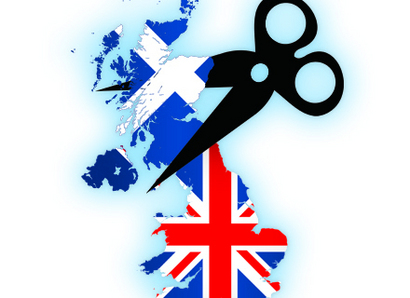
In day 6 of April, Scots went to the polls to form the composition of parliament. The separatist Scottish National Party (SNP), the same as current Prime Minister Nicola Sturgeon, who yielded a fourth consecutive term for the party with that victory, got a total of 64 chairs of 129 existing no parliament. The also separatist Scottish Green Party managed to 8 chairs, thus forming a block 72 pro-independence parliamentarians, whose main platform is the exit from the United Kingdom and the return to the European Union.
Scotland's Prime Minister, Nicola Sturgeon, called British Prime Minister Boris Johnson shortly after the result, in the phone call she told him that now the independence referendum is a matter of when and not if, also stated that there is no democratic justification for preventing the Scottish people from deciding their own future.. still, legal permission to have a legitimate popular consultation must come from London, and the conservative prime minister is a strong opponent of the idea, having judged her as irresponsible and reckless.
In 2014, the last time Scots voted to decide whether or not to remain in the UK, 55% chose to stay. However, the scenario changed when Brexit was voted. Around 62% opted for the UK to remain in the EU, making the debate about voting “scoxit” once again take shape in the country's society. The SNP itself sees the Brexit result as a justification for a new referendum, for the party, Scotland's withdrawal from the bloc vilified the will of the Scottish people, what does it mean to do it again.
in the victory speech, Nicola Sturgeon assured that the conditions are met for Scotland to be consulted once again, but assured that before organizing the event, he will focus on overcoming the health crisis caused by the coronavirus. In addition to the pandemic issue, there is the opposite position of Boris Johnson, the tug of war between the heads of government can lead to the dispute being taken to the courts, by these factors, there is no expectation that the consultation will take place soon if it is authorized.
Once Scotland manages to emancipate itself, will have to follow the same membership application procedure that any other country wishing to join the EU must follow, the queue of countries is long and the process is long. State institutions must be reformulated and certain political and economic issues must be resolved., how: have your own central bank, the ministries themselves, the public bodies themselves, what would your currency be, What would your borders with the UK look like?, would have to resolve the issue of its public deficit which is greater than that of the UK as a whole (being higher than what is normally allowed by the EU). on the european side, it is necessary to assess whether the new Scottish institutions will meet the standards of the bloc, It is worth noting that admission must be accepted by all member states, those who also have separatist movements are not likely to be receptive.
Thereby, the separatist issue creates a dilemma for the Scottish nation, in which the question arises whether it would be more advantageous to participate in a relatively smaller single market, but with an organization that foresees more fiscal transfers – in addition to being your biggest trading partner – or risk becoming independent and rejoin the political super union. Logo, this leads to the conclusion that there are only uncertainties along the way: on holding the referendum, what will be the outcome and whether the EU will accept the return of an independent Scotland.
REFERENCES
elections in scotland. Parliament strengthens pro-independence majority. Available in: <https://sicnoticias.pt/mundo/2021-05-08-Eleicoes-na-Escocia.-Parlamento-reforcou-maioria-pro-independencia-40478a70>.
PRESSE, F. Pro-independence party wins Scottish parliamentary elections, demands referendum on the issue. Available in: <https://g1.globo.com/mundo/noticia/2021/05/08/independentistas-na-escocia-vencem-eleicoes-e-exigem-referendo-sobre-a-independencia.ghtml>. Access in: 13 May. 2021.
PERRIGO, B. Scotland’s Nationalists Won a Big Election. Is Independence Next? Available in: <https://time.com/6047206/scottish-elections-independence/>. Access in: 13 May. 2021.
OSWALD, V. Scotland's first election since Brexit measures adherence to independence proposal. Available in: <https://oglobo.globo.com/mundo/primeira-eleicao-na-escocia-desde-brexit-mede-adesao-proposta-de-independencia-25004493>. Access in: 13 May. 2021.
Scots go to the polls between hope of independence and division. Available in: <https://www.istoedinheiro.com.br/escoceses-vao-as-urnas-entre-esperanca-de-independencia-e-divisao/>. Access in: 13 May. 2021
BURCHARD, EU advances and setbacks in terms of sustainable development. Haste Ye Back! How Scotland could return to the EU. Available in: <https://www.politico.eu/article/haste-ye-back-how-scotland-could-rejoin-the-european-union/>. Access in: 13 May. 2021.
Scottish elections pave the way for independence. Available in: <https://pt.euronews.com/2021/05/10/eleicoes-escocesas-abrem-caminho-a-independencia>. Access in: 13 May. 2021.
Authors: Ana Carolina Olmedo and Pedro Soares
